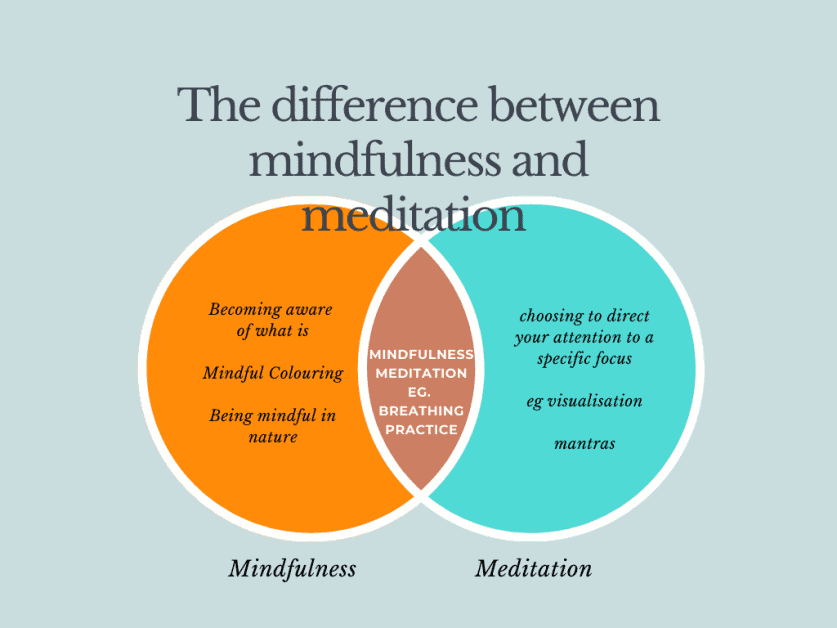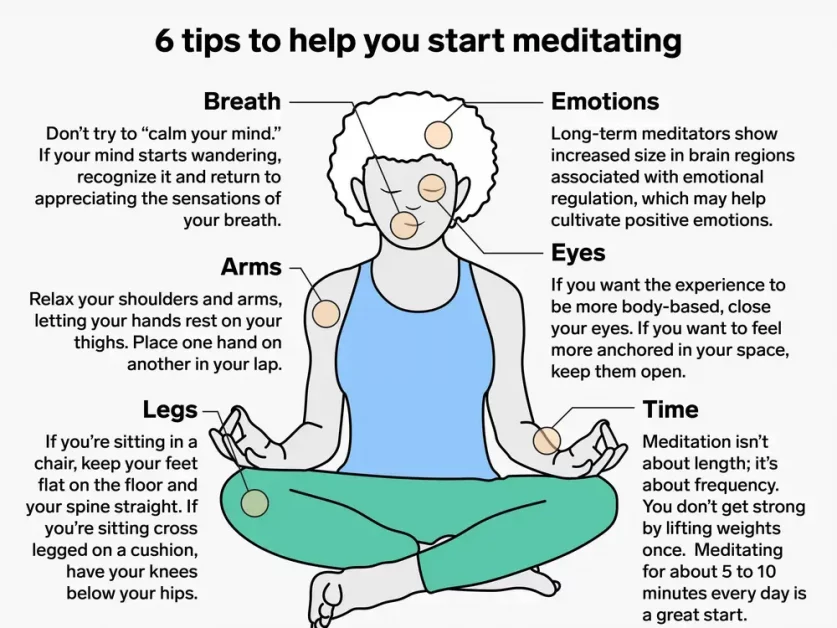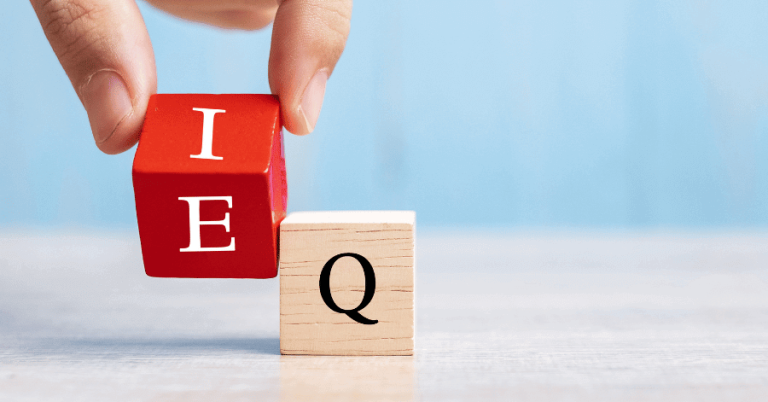What comes to mind when you think of mindfulness? Hippies lying in a field half-baked on a homebrew of relaxants and psychedelics? Buddhist monks sitting in a circle meditating for hours? Sitting on the edge of a picturesque cliff looking down upon the peaceful sunset on the beach?
While mindfulness can certainly be achieved in each of these scenarios, it goes far beyond and extends into every waking minute of our lives. When understood and applied, it can be an extremely powerful tool in controlling your thoughts and emotions.
Unfortunately, in a modern ‘always on’ society, where the mind rarely has a chance to fully relax, it is often overlooked. With the advent of social media, constant communication, and instant news, our minds are always engaged. We can’t even sit on the toilet without checking our messages or news. No wonder we are always so stressed!
Many judge mindfulness as a wishful thinking buzzword with little tangible weight in the real world of careers, friendships, and families. That’s an incredible shame because each of these aspects stands to improve significantly if you could manage your thoughts and emotions, which mindfulness enables.
What is Mindfulness?
Mindfulness can best be defined as “the quality or state of being conscious or aware of something”. Expanding on this, it is the mental state achieved by focusing one’s awareness on the present moment, while calmly acknowledging and accepting one’s feelings, thoughts, and bodily sensations.
When in a state of mindfulness, one is free from self-judgment and aware of their thoughts and feelings without getting caught up in them, no matter how negative. It is freedom!
Imagine living your life without the fear of being judged by others. Imagine living without the fear of never loving or being loved. Imagine that you love yourself just the way you are and always being comfortable with your thoughts and actions.
There are many benefits available for those who can be mindful of their emotions and learn to distinguish between their conscious and subconscious thoughts.
Here’s where the confusion often occurs with mindfulness, however. It is not a temporary state of mind present only when reaching a meditative peak, for it to vanish soon afterward. Rather, mindfulness is a way of living in which we can step back and be present in the moment of any situation.
It is not a technique for disconnecting yourself from the world to achieve a zen-like state of hypnosis. In fact, it is the opposite. It is a way to understand your current situation on a deeper level at all times, whether you are actively trying to be mindful or not. And the more you understand your thoughts and feelings, the more information you have to make good decisions based not on emotion, but logic.
The first step in controlling our thoughts and actions is simply being aware of them. Mindfulness allows a fair and unbiased overview of our situation to analyze events rationally (and avoid impulsive emotional reactions).
Train Mindfulness Through Meditation
There will be a fair few of you who dismiss meditation as a wishful thinking activity for the more spiritually inclined that has little credible and tangible results in the real world.
While mediation’s roots certainly do extend back to Hinduism and center as an integral part of the Buddhist religion for millennia, the benefits of meditation have been shown through numerous scientific studies to be physical and not just spiritual. So, in keeping with the theme of mindfulness as a whole, I advise you to approach the topic with an open mind. What have you got to lose?
In the most general definition, meditation is a way of focusing the mind so that it becomes peaceful and the meditator becomes more aware of their present mindset.
Buddhists define meditation as an invitation to turn one’s awareness away from the world of activity that usually preoccupies our minds towards the inner experience of thoughts, feelings, and perceptions. Where mindfulness is a state of being (the end goal), meditation is an action that can help get us there.
Despite its spiritual roots, meditation provides exceptional benefits for anyone wishing to better manage their two minds (the conscious and subconscious minds).
Remember, the subconscious mind is impulsive and beyond our control, and as such, is responsible for much of the mental suffering and anxiety that often overwhelms us. By manually separating the two minds through meditation, we can begin to encourage our more rational conscious mind to make more logical decisions.
The largest misconception about meditation is that it aims to block all thoughts and feelings entering the mind to achieve some hypnotic state of nothingness. In fact, this couldn’t be further from the real aim of mediation, which is to simply become more aware of your present thoughts and feelings. Only when we are aware of our thoughts can we begin to manage them.
Successful meditation means simply being – not judging or thinking – just being aware, at peace, and living each moment as it unfolds. Its focus is to live in the present and not concern yourself with the past or the future.
Peace is the key. When successfully meditating, we can accept, without judgment, any and all thoughts that the subconscious mind thinks of. And it will. There is nothing like sitting in silence to fully awaken the subconscious mind with a flood of thoughts. Again, the aim is not to block out any negative thoughts, it is to be at peace with all thoughts without the emotions of guilt, anxiety, or judgment.
See this article for a list of the three best books for developing mindfulness, backed by science.

The Science Behind Meditation
We don’t have to take mindfulness on faith. Both science and experience demonstrate its positive benefits for our health, happiness, work, and relationships.
Since the 1950s hundreds of studies on meditation have been conducted to determine any tangible benefits. Although many of the early studies were flawed and yielded unreliable results, contemporary studies have attempted to address many of these flaws to determine its true value.
In 2013, researchers at Johns Hopkins University, publishing in the Journal of the American Medial Association, identified 47 studies that qualify as well-designed and therefore reliable.
Based on these studies, they concluded that there is moderate evidence that meditation reduces anxiety, depression, and pain, but no evidence that meditation is more effective than active treatment (drugs, exercise, other behavioral therapies). It may not be a miracle cure, but a small investment of a few minutes a day can yield the same improvements as physical drugs, without any of the side effects.
How to Meditate
Start in a quiet place where you can spend the next 10 – 15 minutes alone without disturbance. Set a timer on your phone for 10 minutes. As with any new skill, we have to learn how to walk before we can run, so the aim is to first build the habit before we start any meditation marathons. Start with just five minutes if ten is too much – five minutes is better than no time at all.
Search “mediation pillows” on Amazon and you will find hundreds of options. And when searching for the best meditation positions, Padmasana, Siddhasana, and Muktasana will confuse you to no end. In truth, the best position is simply the one in which we can find the most comfort.
When trying to focus the mind, we must eliminate as many external distractions as possible, so when finding a position, aim for maximum comfort. Meditation can be performed standing up, laying down, or even walking, there is no limit as long as you can focus on remaining aware of your thoughts.
I have found the best compromise between focus and relaxation to be when sitting comfortably in a chair. Ensure your back is straight and your spine is neutral for optimal comfort.
To start, simply close your eyes and focus on taking slightly deeper breaths. Remember, meditation focuses on awareness of your present state, so focusing on your breathing is a good way to encourage this sense of simply being. Focus on the feeling of air moving through your nose and filling your lungs.
Much of our day is filled with the stresses of daily life, which results in us taking short and sharp breaths as opposed to larger, more relaxing ones. Allow yourself to stretch and relax your diaphragm by taking large breaths which comfortably fill your lungs without feeling forced. This in itself provides an immense sense of relief.
Having spent 60 seconds or so focusing on enriching your body with fresh oxygen, and releasing the muscles of your diaphragm from the day’s woes, start to focus on your immediate sensations.
What can you hear? What can you smell? How do your muscles feel? Are there any pains or sensations in your body? Don’t fall into the trap of trying to solve them, however. Try not to think about booking a massage for your aching legs, instead just simply acknowledge that they may ache. Remember, live only in the present.

After a while, you will come across your first obstacle. When your conscious mind quietens from the relaxation of the above breathing exercise, a vacuum of thought is created which the subconscious mind soon occupies.
You will have all manner of thoughts enter your mind, from the argument you may have had with your spouse to the groceries you need to buy for dinner. Any and every thought will enter your mind. It is inevitable.
For the inexperienced mediators, this will cause frustration as you aim to relax yet you keep getting distracted by a barrage of thoughts. Remember that we have no control of the subconscious mind, but we can start to work around it by first understanding it.
And here is where the magic, and extreme difficulty, lies with meditation. You will become frustrated with all these thoughts entering your mind when you are trying to relax and quell them. But the only true measure of success for meditation is your ability to remain objective and not to judge yourself on these subconscious thoughts.
Instead, we must accept them without bias or judgment, using our conscious mind. You will never get rid of them completely (remember subconscious thoughts are uncontrollable), but your conscious mind will learn to sit comfortably with them.
Unfortunately, the process is easier said than done. I guarantee you will be frustrated most times you attempt to meditate, despite knowing that you shouldn’t. But progress is measured in your ability to remain calm and to simply acknowledge these subconscious thoughts without judgment from the conscious mind.
We need to have these thoughts in order to become mindful of them. Simply sitting there and not thinking about anything at all would be more sleeping than mindfulness. It is the mindful aspect, observing on a higher level without judgment, feeling, or emotion, that enables us to separate the conscious and subconscious minds, which is our ultimate goal.
Contrary to belief, mediation is an active feat, not a passive one. It is a constant to and fro between getting lost in thought and regaining awareness. And it is incredibly difficult to perform at a high level, requiring immense practice and patience as would any other skill.
One small trick that worked for me was to imagine your conscious mind as a separate entity that looks at your body from a distance. Instead of feeling frustrated and overwhelmed by your subconscious thoughts, think of yourself, the separated conscious mind, as simply observing them as you would observe someone else.
You are not responsible for the actions and thoughts of others, and this should be a similar approach you take to your own subconscious thoughts during meditation. Disconnect your conscious mind from everything else and live only in the present moment.
After weeks, months, and years of practice, you will find yourself more accepting of your thoughts and feelings whilst meditating. You might not necessarily reduce the number of thoughts and feelings that arise, but remember that is not the ultimate goal we are pursuing.
Instead, the ever-lasting benefit is your ability to rationally understand and respond to your thoughts, as opposed to getting frustrated and overwhelmed by them. You become more accepting of your thoughts and they bother you less.
The real beauty of meditation is that these benefits will carry over to everyday aspects of your life, even when not actively practicing meditation.
When you are frustrated by that driver who cut you off or feel negative emotions from a rude customer, your conscious mind will be better able to identify and separate these thoughts from your irrational subconscious mind, just like how you practice whilst meditating.
And when you keep calm and can separate your conscious and subconscious thoughts, you remain more rational and therefore make more logical decisions. There are plenty of YouTube guides on how to practice meditation. Try following one every day for the next month and I guarantee you will soon be able to better manage your subconscious thoughts and develop a much more positive outlook.
The Benefits of Mindfulness
Meditation, and hence mindfulness, provide real benefits in every minute of our lives, whether we realize it or not. In the same way we regularly exercise to improve our long-term physical health, we meditate to improve our long-term mental health. Below are some key benefits that can be realized from meditation and mindfulness.
1) Physical Benefits
Stress is a silent killer that works quietly and unseen behind the scenes to cause grave harm to your health. The body’s response to stress is to release hormones from the amygdala that enables the flight-or-fight response.
These hormones cause changes to the body, such as rapid breathing, increased blood pressure, and a release of glucose into the bloodstream to increase the quantity of oxygen and fuel available to the muscles to give us maximum strength and endurance for survival.
Short-term, this works very well. But continued exposure to it, such as from a stressful job or financial situation, leads to severe health conditions.
Headaches due to muscle tension, digestive distress, insomnia, fatigue, a weakened immune system, high blood pressure, and heart disease are some of the common and most serious conditions of continued stress.
If any issues of these symptoms affect you, consider regular meditation to lower stress levels. Even if unaffected by any of these, consistent meditation can help prevent these conditions should your life take a stressful turn.
2) Mental Benefits
Meditation is one of the best ways to treat anxiety besides medication. And since there are no side effects, it is a better longer-term solution.
Mindfulness enables us to place a situation in its true context. For example, someone cutting you off on your drive home from work may infuriate you, and potentially ruin the rest of what could have been a good day.
When we are mindful and can focus and accept our present thoughts and feelings, we can see that this is an insignificant event in the grand scheme. By the next day, you most likely won’t even remember it happened.
It is a lot easier to let things go when you can see that it is not a big deal. Without context, we tend to blow things out of proportion; perhaps your boss sent you a blunt email highlighting a mistake. In a few hours or days, the problem will be forgiven and forgotten.
When you fail to see this, however, you are more likely to respond emotionally, perhaps with a blunt email in return. This worsens the situation and only adds to the damage. With mindfulness, we can rationally place events in their true context and avoid unnecessary emotional reactions, thereby reducing anxiety at the source.
Mindfulness also promotes a more positive outlook (by avoiding dwelling so much on the negative), enhances self-awareness, lengthens attention span, and promotes sleep to name just a few other mental benefits.
Conclusion
Mindfulness may well be your missing link to success. When we are mindful of our thoughts, feelings, and emotions we can avoid reacting emotionally and can therefore give our rational minds a chance to react logically. We avoid a lot of stress and anxiety that modern life often places upon us and we can reap physical and mental benefits when we learn to let go.
To get started on your mindful journey to freedom, practice regular meditation. No fancy space or equipment is needed – it can be practiced anywhere you can find a peaceful and comfortable sport. Just a few minutes of mindfulness practice every day will improve your well-being almost immediately. But when you manage to practice it long-term, the benefits will last forever.
FAQs
What is mindfulness in simple terms?
Mindfulness is the practice of being fully aware of the present moment—your thoughts, feelings, and body sensations—without judging them. It means noticing what’s happening in your inner world instead of being dragged around by it.
Is mindfulness the same as meditation?
No. Mindfulness is a state of being—present, aware, and non-judgmental. Meditation is a practice that helps you train this state. You use meditation to strengthen mindfulness so it shows up in everyday life, not just on the cushion.
How does meditation actually help with stress and anxiety?
Meditation helps you notice your thoughts and emotions without instantly reacting to them. Over time, this reduces stress hormones, calms the nervous system, and stops small triggers—like a rude email or bad driver—from spiralling into full-blown anxiety.






